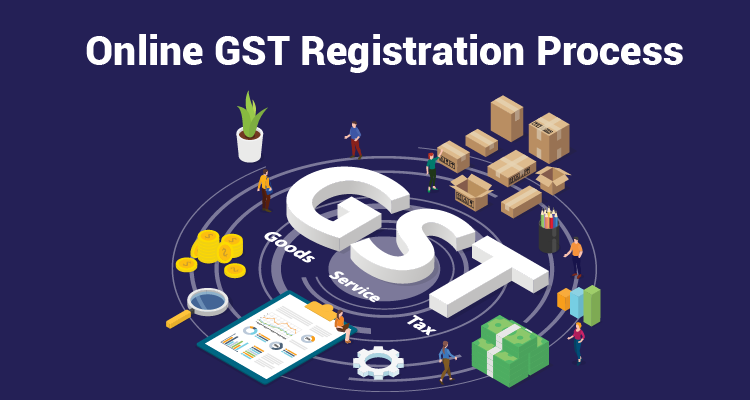Recognizing the Perks of Singapore GST Registration for SMEs
Recognizing the Perks of Singapore GST Registration for SMEs
Blog Article
The Ultimate Overview to Simplifying the GST Enrollment Refine and Requirements for Small Company Owners

Comprehending GST Fundamentals
To understand the principles of the Item and Provider Tax (GST) system, little company owners must initially comprehend its underlying effects and concepts. Under the GST regime, organizations are called for to sign up and collect tax obligation on part of the government, making certain transparency and conformity.
One of the key concepts of GST is input tax credit rating, which permits companies to assert credit report for taxes paid on their purchases. This mechanism protects against the cascading result of taxes and promotes performance in the tax system. Furthermore, GST is a destination-based tax obligation, implying that the tax obligation is imposed at the point of usage instead than the point of origin. This makes sure fair circulation of tax profits amongst states based on where the services or items are consumed. Comprehending these standard concepts is essential for small company proprietors to navigate the complexities of the GST system and make certain conformity with the law.
Eligibility Requirements for Registration
Having established a foundational understanding of GST principles, local business owners need to currently satisfy certain qualification requirements to wage the registration process. In India, entities engaged in the supply of goods or solutions with a yearly accumulation turnover surpassing Rs. 40 lakhs (Rs. 10 lakhs for special category states) are required to sign up for GST. In addition, particular services such as those associated with inter-state supply of products, laid-back taxed individuals, and those needed to pay tax under the reverse charge device have to sign up for GST irrespective of their turnover. Furthermore, organizations that were signed up under the previous tax regime (BARREL, solution tax, and so on) are additionally mandated to sign up under GST. Nonetheless, farming organizations that only provide produce out of key manufacturing are exempt from GST enrollment. It is essential for entrepreneur to meticulously examine their eligibility based upon these criteria to make certain compliance with the law and stay clear of any fines for non-compliance.
Files Needed for GST Enrollment

Simplified Registration Process Actions
Complying with the collection and verification of the requisite records, the enrollment process for GST can be browsed with a series of streamlined steps designed to promote effective conformity for local business proprietors. The very first step entails going to the GST site and choosing the 'New Registration' choice. Ultimately, the applicant must fill up in Part A of the GST REG-01 type with information such as PAN, mobile number, and e-mail address to acquire an OTP for confirmation. When the OTP is received and gone into, a Temporary Referral Number (TRN) is generated for more proceedings. The following step calls for submitting Component B of the form with needed business details, posting supporting files, and finishing the verification process making use of DSC or EVC. Finally, upon successful confirmation, an Application Reference Number (ARN) is provided, showing the conclusion of the GST enrollment process. By adhering to these simplified steps, local business owners can successfully sign up for GST and ensure compliance with tax policies.
Tips for Ensuring Compliance
To maintain regulative adherence and operational stability, thorough oversight and aggressive actions are crucial in ensuring compliance with GST demands for that site little service owners. Little service owners should stay updated with GST policies, filing deadlines, and any changes in tax prices to stay clear of fines and keep a great standing with tax authorities. Attending GST awareness workshops or training programs can enhance understanding and conformity with GST guidelines, eventually benefiting the company in the long run.
Verdict
In conclusion, local business proprietors need to comprehend the basics of GST, fulfill the qualification requirements, gather essential files, and adhere to the simplified registration procedure steps to ensure conformity. By streamlining the GST registration procedure and requirements, local business owners can avoid important site fines and over at this website operate their businesses efficiently within the legal structure - Singapore GST Registration. It is important for local business proprietors to stay certified and informed with GST laws to preserve a successful organization operation
Tiny service owners seeking GST enrollment need to guarantee they gather and send the needed documents to finish the enrollment process successfully. The documents needed for GST registration normally include proof of business registration or unification, PAN (Long-term Account Number) card of the business address, identity and entity proof of the promoters/partners/directors, pictures, address evidence of the place of service, financial institution account statements or terminated cheques, and consent types. Going to GST recognition workshops or training programs can enhance understanding and compliance with GST laws, ultimately profiting the business in the long run.
By simplifying the GST registration procedure and needs, small company proprietors can stay clear of fines and operate their companies efficiently within the lawful framework. It is important for little organization proprietors to stay compliant and educated with GST guidelines to keep a successful business operation.
Report this page